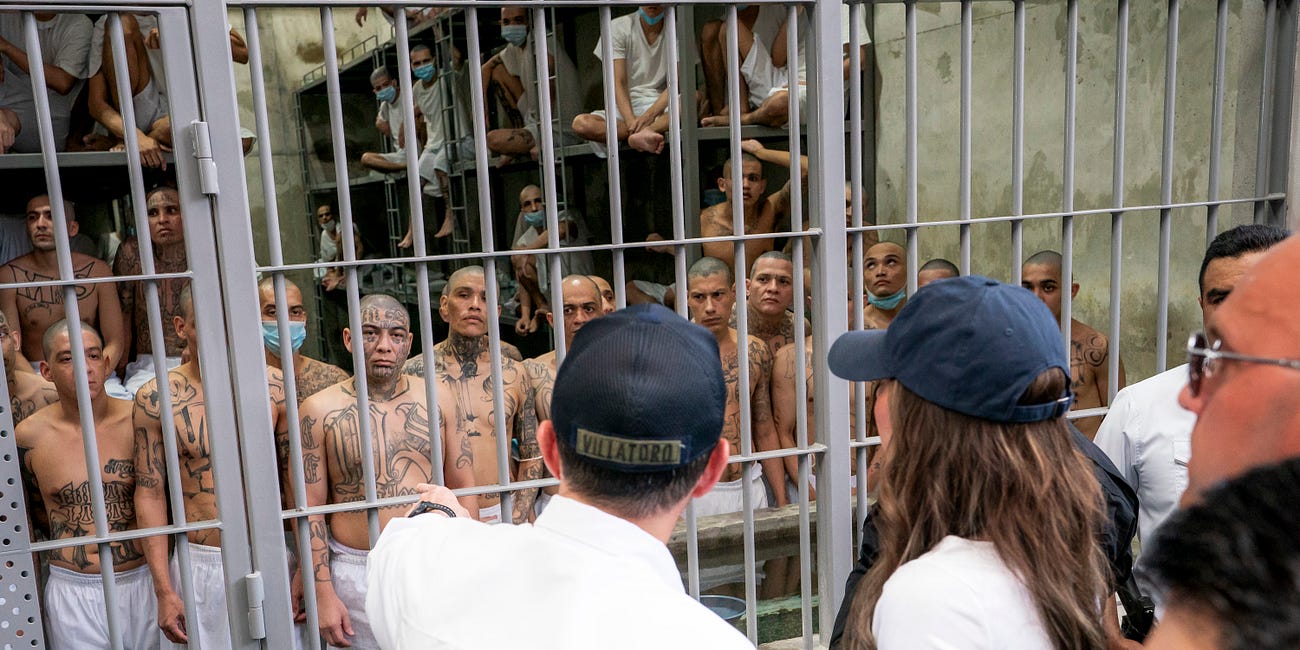ADDENDUM B: Rebuttal to Common Legal Justifications for Judicial Constraints on Executive Immigration Authority
Rebuttals to Bad Faith
Read Part 1 here:
Invasion USA
Issue PresentedThanks for reading Autodidact Obsessions! Subscribe for free to receive new posts and support my work.
Part 2:
Exhibit A: Case Study – Strategic Exploitation of Judicial Ambiguity by Foreign Paramilitaries
Read Section 1, the Brief, here:
I. Introduction
This addendum rebuts common legal arguments that justify judicial constraints on the Executive Branch's authority in immigration enforcement, particularly in the context of mass unlawful entry and national security threats. While these arguments often rely on constitutional principles, precedent, and humanitarian values, they are either misapplied or have evolved in ways that conflict with the Constitution's structural commitment to national sovereignty and defense.
---
II. Rebuttal of Key Legal Arguments
---
A. Due Process Applies to All “Persons” – Including Illegal Immigrants
Cited Argument:
Courts have held that due process protections under the Fifth and Fourteenth Amendments apply to all “persons,” including non-citizens who are unlawfully present in the United States.
Key Cases:
Zadvydas v. Davis, 533 U.S. 678 (2001)
Yamataya v. Fisher, 189 U.S. 86 (1903)
Rebuttal:
These cases arose in contexts not involving national security emergencies or covert enemy infiltration, but rather routine administrative detention and deportation of individuals with known identities.
In Zadvydas, the Court imposed limits on indefinite detention but acknowledged national security exceptions, noting that detention may be permissible “under special circumstances, including... terrorism.”
In Yamataya, while recognizing procedural protections, the Court did not grant substantive due process rights that would override national security concerns.
> Legal Point: Due process does not mean unlimited judicial review, especially where Congress has “plenary power” over immigration (Fiallo v. Bell, 430 U.S. 787 (1977)), and the Executive must protect the nation from covert threats.
---
B. Judicial Oversight Prevents Executive Overreach
Cited Argument:
Courts must maintain constitutional checks on Executive action to prevent abuse, even in matters of immigration or national security.
Key Cases:
Boumediene v. Bush, 553 U.S. 723 (2008)
Hamdi v. Rumsfeld, 542 U.S. 507 (2004)
Rebuttal:
Boumediene and Hamdi concerned U.S. detention of enemy combatants during wartime, and both recognized that the Executive has broad authority in the face of legitimate threats.
In Hamdi, the Court wrote:
> “It is beyond question that the Government may detain individuals who fight against the United States.”
Even in granting detainees habeas rights, these cases emphasize a flexible balancing test based on national interest.
Neither case suggests the judiciary should paralyze the Executive's ability to repel covert invasion or systemic criminal infiltration.
> Legal Point: In a real or asymmetric invasion scenario, courts have historically deferred to the Executive (The Prize Cases, 67 U.S. 635 (1863)), affirming that the President has the constitutional authority to act without waiting for Congress or judicial approval in defense of the homeland.
---
C. Rights of Non-Citizens Are Broad and Evolving
Cited Argument:
Non-citizens have been afforded increasing constitutional protections under evolving jurisprudence.
Key Cases:
Plyler v. Doe, 457 U.S. 202 (1982)
Wong Wing v. United States, 163 U.S. 228 (1896)
Rebuttal:
Plyler was limited to education access for children of illegal immigrants—not deportation, detention, or national security contexts.
Wong Wing prohibited criminal punishment of non-citizens without trial but did not interfere with deportation as a civil matter.
These cases are being misapplied to justify rights-based litigation that disables national defense policy.
> Legal Point: These precedents do not override the sovereign right to expel or exclude individuals deemed a threat, nor do they require individualized hearings in national security emergencies. The “entry fiction” doctrine still allows for reduced rights at the border or point of entry (Shaughnessy v. United States ex rel. Mezei, 345 U.S. 206 (1953)).
---
D. Congress Has Not Authorized Emergency Powers in Immigration Contexts
Rebuttal:
Congress has delegated broad authority to the President under:
8 U.S.C. § 1182(f) – Presidential authority to suspend entry of any class of aliens deemed detrimental to U.S. interests.
50 U.S.C. § 1701 et seq. (IEEPA) – Emergency powers in response to unusual or extraordinary threats.
8 U.S.C. § 1225(b) – Permits expedited removal without hearings for inadmissible aliens.
Courts have narrowed or stayed the use of these laws through judicial interpretation (Hawaii v. Trump, 138 S. Ct. 2392 (2018)), even where national security justifications were presented.
> Legal Point: These are not gaps in the law—they are obstructions caused by judicial expansion of due process rights into areas Congress and the Constitution assign to the political branches.
---
III. Conclusion
The core legal justifications for current judicial constraints on Executive immigration authority are either:
Misapplied to situations involving national defense,
Based on distinguishable or outdated precedent, or
Directly contradicted by constitutional and statutory provisions granting plenary power to the Executive and Congress in matters of national security and immigration.
In context of asymmetric infiltration or covert invasion, these judicially enforced constraints constitute a dangerous legal overreach—one that disables the President’s constitutional responsibility to defend the homeland. They cannot be sustained without causing grave harm to national sovereignty.
Therefore, these precedents and arguments should not serve as shields for strategic exploitation by foreign actors, and the courts must recalibrate the constitutional balance in favor of preserving U.S. sovereignty and Executive defensive authority.






